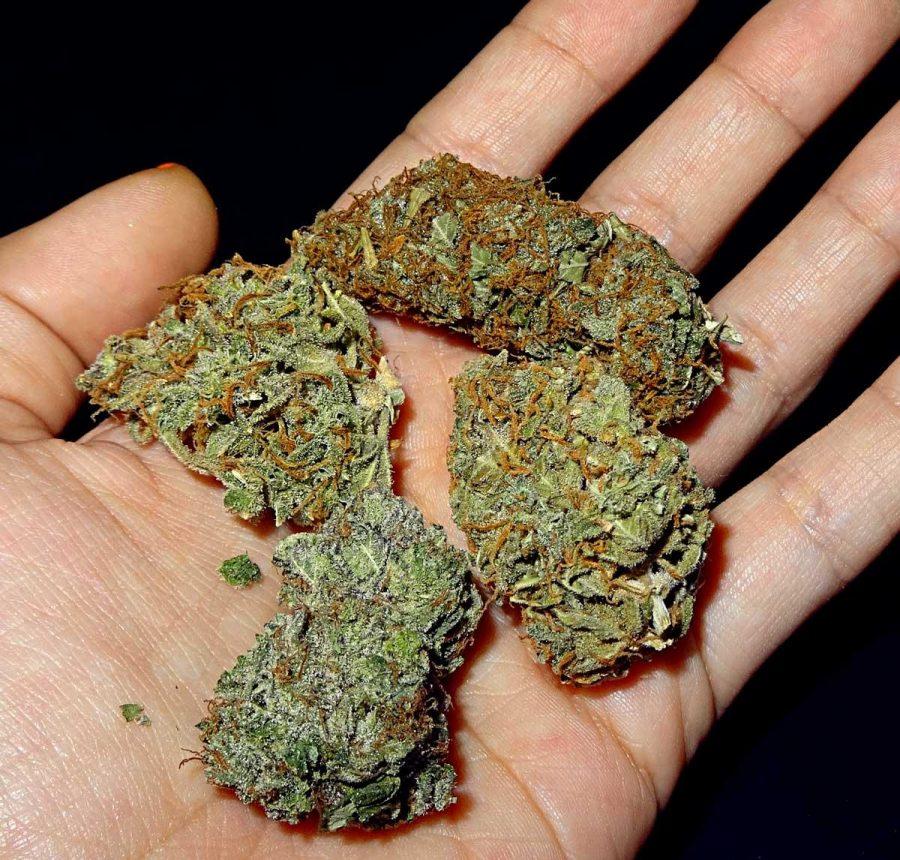Marijuana possession ranks one of top residence hall crimes
November 3, 2016
With 11 incidents recorded in last school year’s crime log, marijuana possession is the second most common crime in the residence halls, behind theft.
But the drug is still less common on UNA’s campus than at other universities, said Chief of University Police Kevin Gillilan.
When UNA police encounter the drug in residence halls, they have a choice to make, he said.
“Based on the circumstances, they can either make an arrest and refer it (to the Student Conduct Office) or just refer it,” Gillilan said.
There are a few factors involved in the decision, including how cooperative the student is, if they are a repeat offender and the amount of marijuana in their possession, he said.
University Residences has a no-drug tolerance policy, said Caroline Bowen, assistant director of University Residences.
“If you are found with marijuana in the halls — possessing it, using it, anything like that — you would be removed from the halls,” Bowen said. “So, you’d no longer have the ability to live there.”
Junior Jacob Fields said he has never noticed marijuana in his residence hall, Lafayette Hall.
But freshmen Chloe Wheeler, Darien Madison and Malik Holloway said they have noticed the smell of marijuana in Olive Hall and Mattielou Hall.
“I’ve smelled it on campus a couple of times in the designated smoking areas,” Holloway said.
If the police catch a student with marijuana, they will not always automatically go to jail, Gillilan said.
“If we encounter a student that’s never been in any trouble (and) has a minimal amount (of marijuana), the officer could, in fact, choose to just refer that to Student Conduct in the hopes that that experience will correct the problem,” Gillilan said. “It’d be a learning experience for the student without putting something on their permanent record.”
When UNA police refer a student to the Student Conduct Office for marijuana possession, the office takes an educational approach to the situation, said Kimberly Greenway, director of Student Conduct and Student Affairs Assessment.
“We’re making sure they have counseling opportunities,” Greenway said. “(The Student Conduct Office tries) to make sure they have the support systems they need to help them identify, ‘What are local and state laws?’ and, ‘How does that impact me, and why am I doing this? Is it for stress, or is it for other reasons?’
“(This helps students) identify why the use is actually there so that we can educate them to make a better choice in the future.”
For a first offender, the charge is normally a misdemeanor, Gillilan said.
“You can be jailed for up to a year,” Gillilan said. “Your fines would probably not exceed maybe $6,000.”
If the police catch a student multiple times with marijuana, the repercussions are even more serious, Gillilan said.
“If (UNA police) goes back to a student that is repeatedly caught with illegal drugs on campus, it’s going to move the level of (the offense) up,” he said. “They might be suspended. They could, in fact, be kicked out of a (residence) hall, and then of course criminal charges would follow.”
Those charges would include fines and jail time, Gillilan said.
“I know if you get caught, say, with a second marijuana charge in Alabama, it moves it up to a felony automatically,” he said. “Then you can be imprisoned from one to 10 years, and the fine can reach as high as 15 grand for that.”


